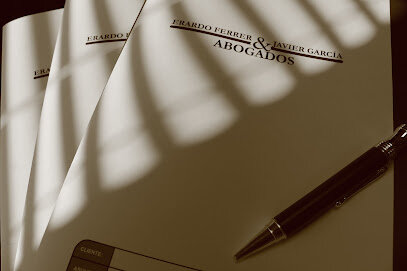Best White Collar Crime Lawyers in Spain
Share your needs with us, get contacted by law firms.
Free. Takes 2 min.
Or refine your search by selecting a city:
List of the best lawyers in Spain
About White Collar Crime Law in Spain
White collar crime in Spain encompasses a range of non-violent, financially motivated offenses typically committed by professionals, entrepreneurs, or public officials. Examples include fraud, embezzlement, bribery, money laundering, tax evasion, corruption, and insider trading. These crimes are often complex and can have serious legal consequences, including fines, restitution, and imprisonment. The Spanish legal system actively pursues these offenses, emphasizing transparency, accountability, and the protection of economic integrity.
Why You May Need a Lawyer
There are several scenarios in which seeking legal advice might be essential when dealing with white collar crime:
- Accusations or Charges: Being accused or charged with a white collar crime requires immediate legal representation to protect your rights and build a defense.
- Internal Investigations: Companies conducting internal investigations may need legal guidance to ensure procedures are lawful and protect the business's interests.
- Victims of White Collar Crimes: Businesses or individuals who have suffered due to white collar crimes may seek legal help to recover losses.
- Mergers and Acquisitions: Legal advice is crucial in ensuring that all financial dealings are legitimate and that due diligence uncovers any potential fraudulent activities.
Local Laws Overview
White collar crime legislation in Spain is outlined in the Penal Code. Key aspects include:
- Fraud: Article 248-251 of the Penal Code covers fraud, which involves deceiving someone for monetary gain.
- Embezzlement: Article 432-435 addresses misappropriation of funds by individuals, often in positions of authority or responsibility.
- Bribery and Corruption: Articles 419-427 focus on public sector corruption, where individuals exchange favors for financial incentives.
- Money Laundering: Articles 298 outlines the illegal act of disguising monetary origins obtained through crime.
- Insider Trading: Article 284 penalizes the use of privileged information for financial market transactions.
Frequently Asked Questions
What constitutes a white collar crime in Spain?
White collar crimes in Spain include fraud, embezzlement, bribery, money laundering, tax evasion, and insider trading, among others.
What are the penalties for white collar crimes in Spain?
Penalties vary by offense but can include fines, restitution, disqualification from professional practice, and imprisonment.
How are white collar crimes investigated in Spain?
Investigations are typically conducted by specialized units within law enforcement agencies, often in collaboration with financial institutions and regulatory bodies.
Can a business be held liable for white collar crimes?
Yes, businesses can face legal penalties, fines, and reputational damage if involved in or failing to prevent white collar crimes.
What should I do if I suspect fraud within my company?
Initiate an internal investigation immediately, maintain detailed records, and consult a legal professional to navigate the legal implications.
Is intent necessary to be convicted of a white collar crime?
Generally, intent is a crucial element in most white collar crimes, meaning the perpetrator must knowingly commit the illegal act.
How can I defend against white collar crime accusations?
Common defenses include lack of intent, entrapment, insufficient evidence, or reliance on false information. A lawyer can advise on the best strategy.
What role does compliance play in preventing white collar crimes?
Effective compliance programs can help prevent crimes by ensuring all business practices adhere to legal standards and ethical norms.
Can whistleblowers face retaliation in Spain?
Spanish law offers some protection to whistleblowers, especially in public administration contexts, to safeguard against retaliation.
Are there alternative resolutions to litigation for white collar crimes?
In some cases, plea deals or settlements might be possible, but this depends on the specifics of the case and legal strategies involved.
Additional Resources
Consider consulting the following resources for more information:
- El Consejo General del Poder Judicial: Offers information on the Spanish courts and judiciary system.
- The Law Society of Spain (Consejo General de la Abogacía Española): Provides resources to find legal professionals specialized in white collar crime.
- Ministerio del Interior: The Ministry of the Interior provides official updates on legal proceedings and crime statistics.
- Financial Regulatory Bodies: Such as the Comisión Nacional del Mercado de Valores (CNMV), which regulates financial market activities.
Next Steps
If you require legal assistance related to white collar crime in Spain:
- Consult a lawyer with specialized knowledge in white collar crime law. Early engagement can be crucial for a favorable resolution.
- Gather and organize all relevant documentation and evidence that may pertain to your case.
- Avoid discussing your case with anyone other than your legal representative to prevent misunderstandings or inadvertent admissions.
- Consider seeking advice from professional associations and regulatory bodies relevant to your specific industry or situation.
Lawzana helps you find the best lawyers and law firms in Spain through a curated and pre-screened list of qualified legal professionals. Our platform offers rankings and detailed profiles of attorneys and law firms, allowing you to compare based on practice areas, including White Collar Crime, experience, and client feedback.
Each profile includes a description of the firm's areas of practice, client reviews, team members and partners, year of establishment, spoken languages, office locations, contact information, social media presence, and any published articles or resources. Most firms on our platform speak English and are experienced in both local and international legal matters.
Get a quote from top-rated law firms in Spain — quickly, securely, and without unnecessary hassle.
Disclaimer:
The information provided on this page is for general informational purposes only and does not constitute legal advice. While we strive to ensure the accuracy and relevance of the content, legal information may change over time, and interpretations of the law can vary. You should always consult with a qualified legal professional for advice specific to your situation.
We disclaim all liability for actions taken or not taken based on the content of this page. If you believe any information is incorrect or outdated, please contact us, and we will review and update it where appropriate.
Browse white collar crime law firms by city in Spain
Refine your search by selecting a city.














